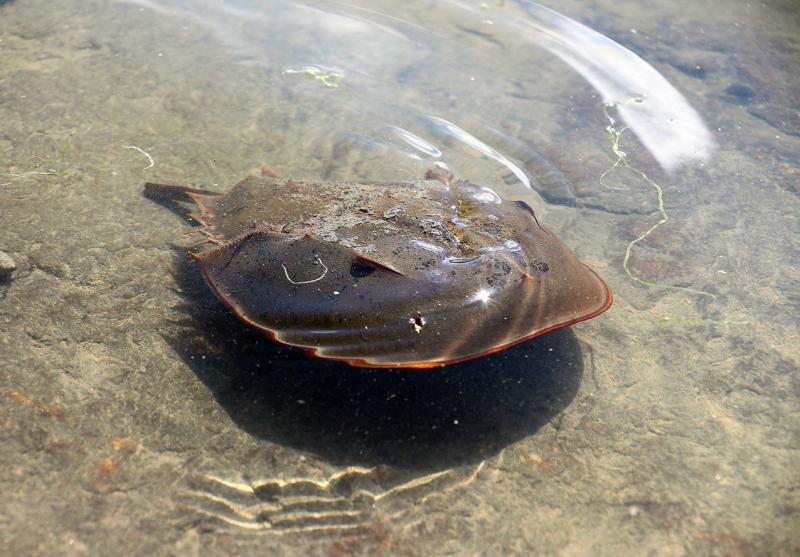Coastal Rivers seeks volunteers for spring horseshoe crab count
Horseshoe crabs will soon be arriving at the shores of the Damariscotta River estuary to lay their eggs. These fascinating creatures are actually not crabs at all, but are more closely related to arachnids – and they’ve existed in a similar form for over 250 million years. Coastal Rivers is seeking volunteers for a long-standing community science program that collects data on horseshoe crab populations in the estuary.
A training session for the program will be held Thursday, April 18 from 3 to 5p.m. inthe Denny Conservation and Education Center at Coastal Rivers’ Round Top Farm in Damariscotta. Participants should bring tall rubber boots suitable for wading, but all other equipment is provided. It is important that volunteers be able to navigate a rocky shoreline and steep banks.
Led by Director of Education and Community Science Sarah Gladu, the training will provide volunteers with somebackground on horseshoe crab biology and details onthe monitoring procedure. The group will travel to a nearby monitoring site for some hands-on practice with procedure and documentation.
At the training, Gladu will share a schedule so volunteers can register for the times that suit their schedules. The schedule will vary according to the time of the daytime high tide.Volunteers do not need to be available to monitor every day.
Coastal Rivers’ monitoring program is the sole source of data on horseshoe crab populations in the region. From the beginning of May through mid-June, volunteers spend approximately one hour during high tide each day counting horseshoe crabs. The process requires one volunteer in the water at the shoreline to spot and count, while a second volunteer on shore records the information on a clipboard. Volunteers also measure and record the salinity and temperature of the water since these factors have a bearing on horseshoe crab behavior.
The count information is used to determine changes in population over time and develop an understanding of horseshoe crab behavior in this region. The data are also critical in determining the health of the overall environment, particularly in Great Salt Bay.
Registration for this volunteer training is required and can be done online at coastalrivers.org/events.




































